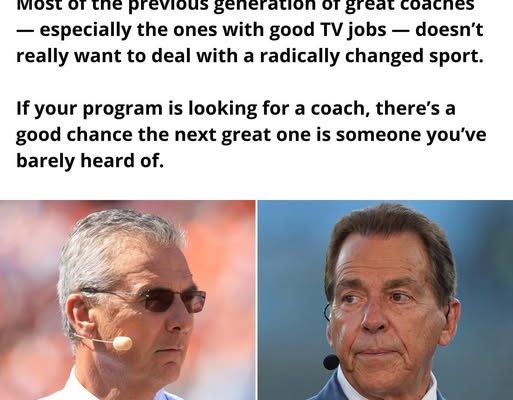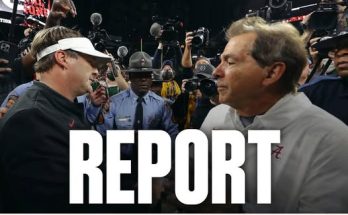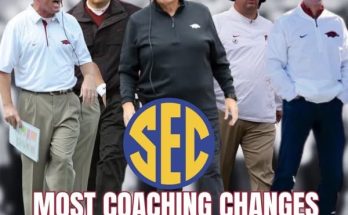College football used to be a realm of control. Coaches like Nick Saban and Urban Meyer ruled with an iron grip, dictating every inch of their programs from recruiting to player behavior. Their word was gospel, their programs were dynasties, and their systems defined success for over a decade. They were the architects of order in a sport that valued hierarchy, discipline, and fear-based respect. But that world is gone now. The transfer portal, NIL, and the explosion of player empowerment have rewritten the laws of college football. What once worked under Saban or Meyer would crumble in the chaos of today’s landscape — not because they suddenly became worse coaches, but because the game they mastered no longer exists.
Nick Saban’s Alabama empire thrived on one principle: control. Every practice, every rep, every decision flowed through his command. He built a dynasty not only by recruiting elite talent but by forcing those players to buy into a system where the program came before the individual. That meant players rarely transferred, they didn’t question roles, and if you were a five-star freshman who didn’t see the field, you waited your turn or you were gone — quietly. There were no NIL contracts to negotiate, no agents whispering promises of bigger paydays elsewhere, and no social media stars in the locker room leveraging fame for playing time. Saban’s “Process” worked because it functioned in a world that demanded submission, not negotiation.
Urban Meyer was cut from the same cloth — a master motivator, manipulator, and culture enforcer who built programs through raw intensity and psychological pressure. At Florida, his players feared him as much as they respected him. At Ohio State, he was the ultimate CEO, managing everything from recruiting tactics to strength programs with ruthless precision. Both coaches thrived in environments where their authority was absolute. But in 2025, that kind of dominance is not only outdated — it’s unsustainable.
Today’s college football landscape is an open market. Players aren’t just athletes; they’re brands. They have agents, marketing teams, and endorsement portfolios before they’ve even played a down. They can transfer freely and get paid immediately. A coach like Saban, who used to demand a player wait three years to earn a starting role, would lose that player to the transfer portal within a week. A coach like Meyer, who used psychological warfare as a motivational tool, would face instant backlash in an era where every locker room speech can be recorded and leaked. The world has changed — and it’s the players, not the coaches, who now hold the cards.
It’s not that Saban or Meyer couldn’t coach the X’s and O’s — their football minds remain elite. But their dominance wasn’t just about strategy. It was about control of the culture, about building systems where loyalty and fear created accountability. Now, accountability looks different. Coaches have to recruit their own rosters every offseason, not just high school prospects. They have to manage egos inflated by seven-figure NIL deals, handle transfer requests with diplomacy, and rebuild chemistry in constantly changing locker rooms. That’s not the kind of environment that rewards authoritarian control. It rewards adaptability, emotional intelligence, and transparency — three qualities that weren’t exactly cornerstones of the Saban-Meyer era.
When Saban retired from Alabama, he did so with a sense of finality — not just because of age, but because he knew the game had evolved beyond his comfort zone. He publicly admitted his frustration with the new world of NIL and the portal, saying it felt more like “free agency without rules.” For a man who thrived on structure, that kind of instability was chaos. It wasn’t football the way he built it. The transfer portal stripped away the long-term development cycles he depended on. NIL stripped away the competitive balance he used to master. And the result was a game that looked unrecognizable to the man who once defined it.
Urban Meyer, meanwhile, has become a cautionary tale. His brief NFL stint with Jacksonville exposed the limits of his control-based style, and his reputation was further tarnished by scandals that would have been magnified tenfold in today’s college environment. If Meyer tried to run a program today with the same intensity and secrecy that fueled his early success, it would collapse under the pressure of social media scrutiny, player mobility, and institutional oversight. The players he once could intimidate would simply leave. The assistants he once could overwork would speak out. The boosters he once could manipulate would now expect results that align with NIL returns, not just championships.


